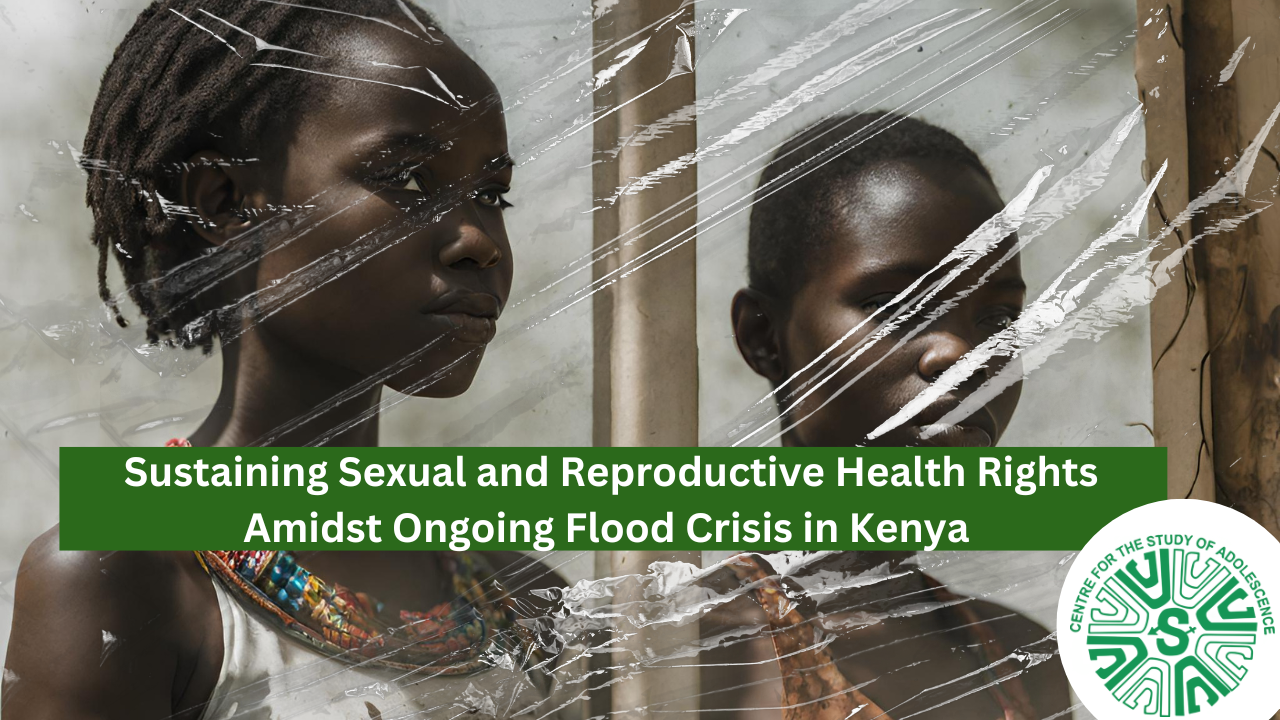Sustaining Sexual and Reproductive Health Rights Amidst Ongoing Flood Crisis in Kenya
The severity of floods in Kenya continues to cause adverse effects on the Sexual Reproductive Health of Adolescents and young people. With around 200,000 people displaced by the ongoing floods as recorded by Human Rights Watch, a critical question is raised: How do we ensure the safeguarding of Sexual and Reproductive Health (SRH) rights of the affected persons in the face of this natural disaster? Sexual Health for youth and adolescents encompasses access to SRH products and services which include menstrual hygiene management, safe abortion, sanitary towels, emergency contraception, oral contraceptive pills, condoms, self-test kits, prenatal vitamins, counseling and maternal care among others.
With the ongoing floods in Kenya, access to SRH commodities and Services has been hindered as transportation in most areas remains paralyzed, some people have been shut indoors by their flooded environs and some health care services disrupted across different counties. This leads to unintentional negligence of their Sexual Health and creates unsanitary conditions that make proper menstrual hygiene management difficult and disposal of used sanitary towels even harder since the heavy rains and overflowing waterways have inundated toilets in flooded areas, especially marginalized communities.
The situation is worsened by the unpredictable repercussions of the ongoing natural disaster, as even areas typically unaffected by floods, experience similar disruptions to transportation and access to healthcare services as flood-prone zones. With the Kenya Meteorological Department stating that the heavy downpour is set to continue till July, 2024, extra measures should be put in place to protect the rights on access to SRH of persons in the affected regions, appreciating that, need for Reproductive Health Services and Products doesn’t fade out in the face of calamity.
Unfortunately, among the minority groups most impacted by the unforeseen consequences of the disaster are young women and girls in flood-affected communities. It remains essential for both governmental and non-governmental organizations to prioritize the safeguarding of access to reproductive health services of such groups amongst.


